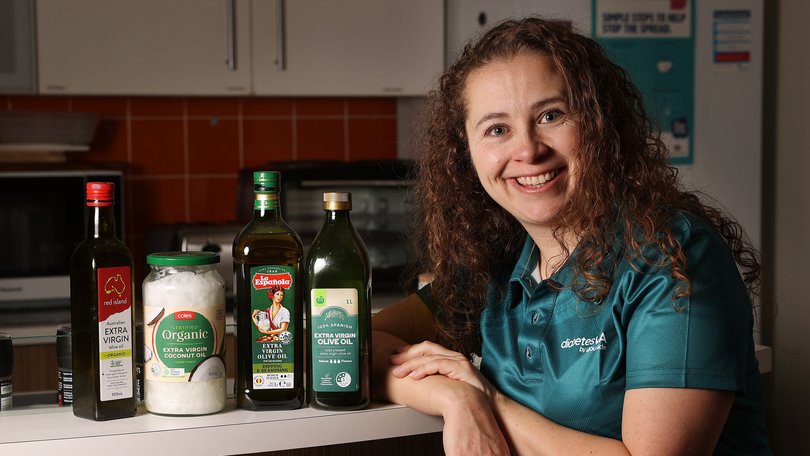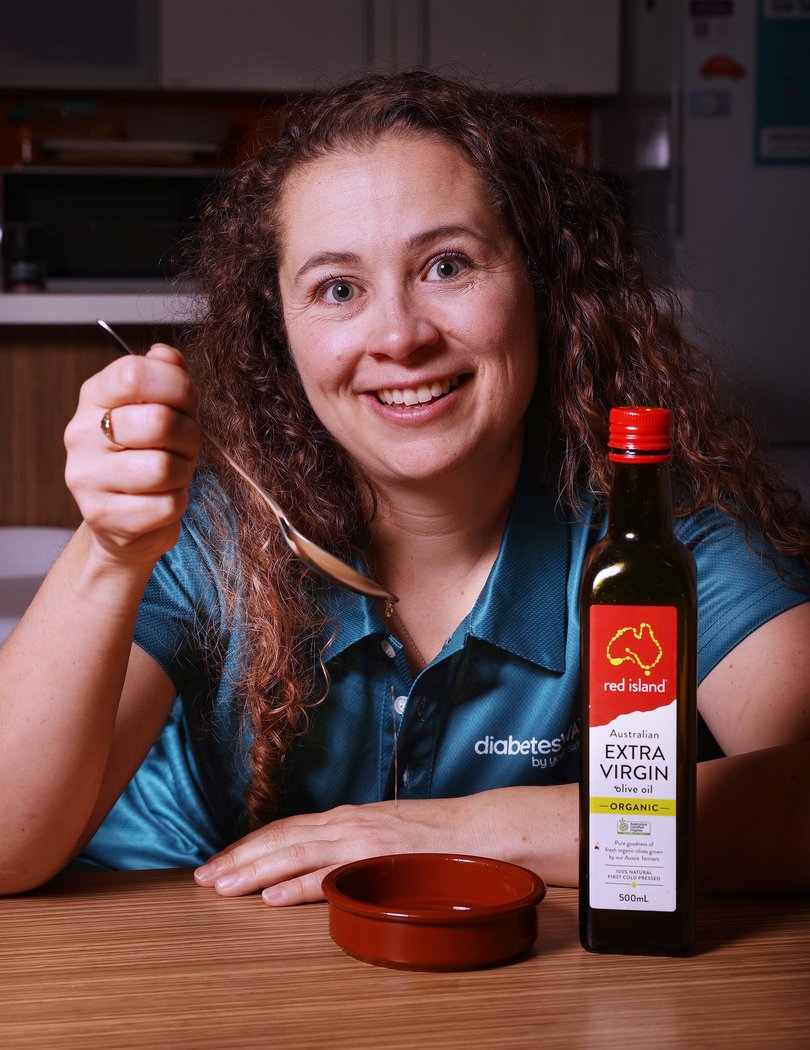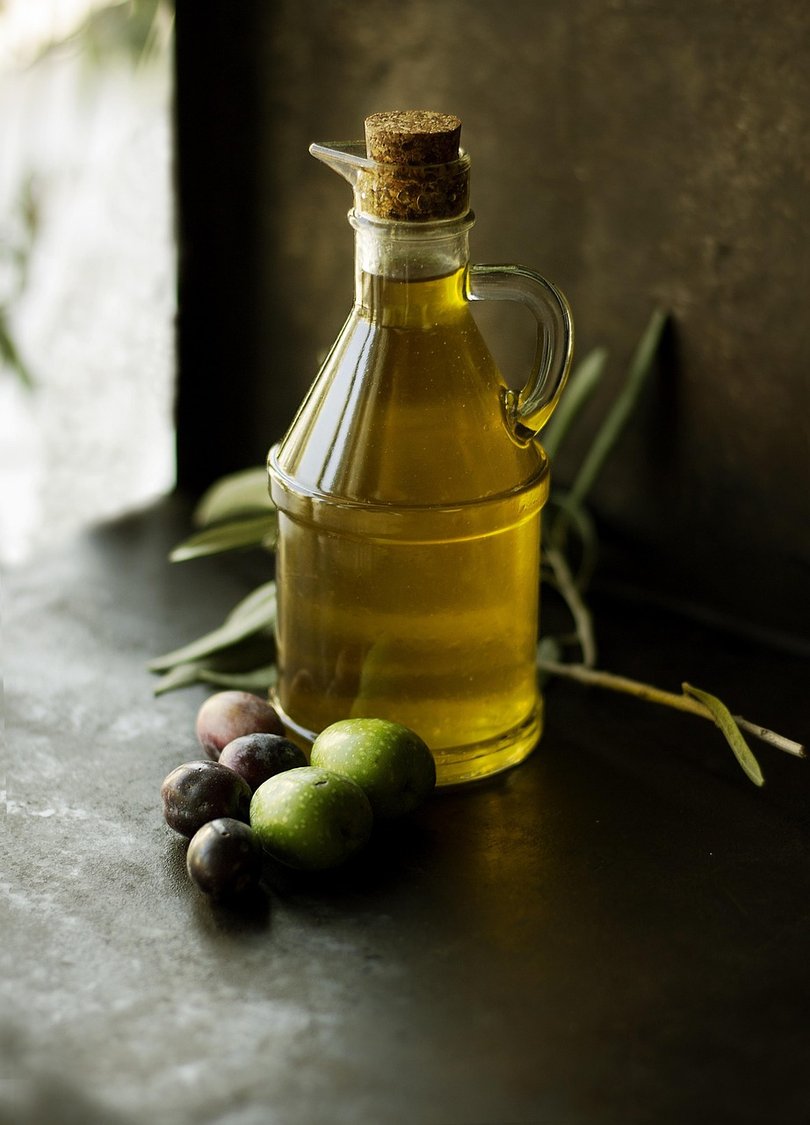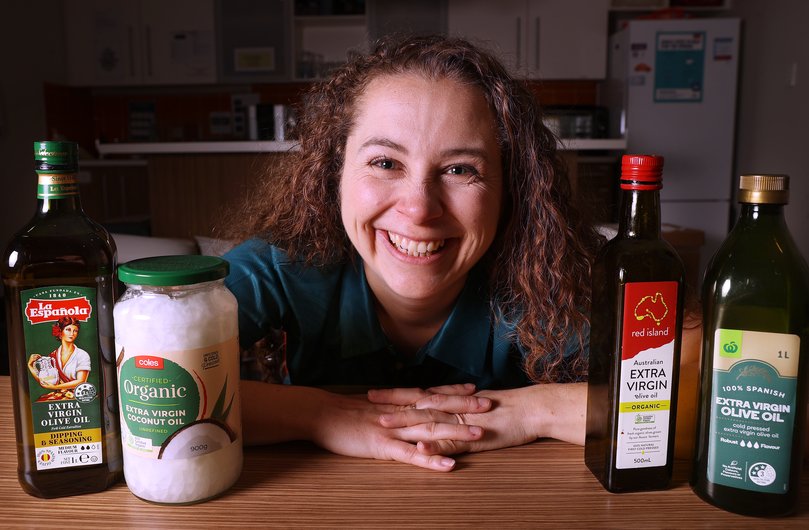Seed oils: Making sense of the complex science behind good cooking oils
We all consume them. Oils are an inescapable element of the modern western diet. Yet the matter of which food oils are best for our health is complex, confusing and, at times, controversial.

We all consume them. Oils are an inescapable element of the modern western diet.
Yet the matter of which food oils are best for our health is complex, confusing and, at times, controversial.
Canola, safflower, coconut, peanut, avocado, olive, rice bran and grapeseed are some of the many available oils on supermarket shelves.
Sign up to The Nightly's newsletters.
Get the first look at the digital newspaper, curated daily stories and breaking headlines delivered to your inbox.
By continuing you agree to our Terms and Privacy Policy.The increasingly long list has been driven by the rise and proliferation of seed oils.
They are cheap to produce on an industrial scale and come with a long shelf life, making them a common ingredient in ultra processed foods.
Seed oils were initially marketed as “heart-healthy” alternatives to saturated fats, with clinical trials showing people who replaced saturated fats with them had lower cholesterol and cardiovascular disease risk.
But there are growing concerns that excessive levels of linoleic acid, which is an omega 6 polyunsaturated fat and can be found in high proportions in some seed oils, can have adverse health effects, causing inflammation and chronic diseases.
Charlotte Rowley, a Perth dietitian who studied oils for four years as part of her PhD, said the question of the healthiest oil was the one she was asked most.
“People are confused about many aspects of nutrition, because there is always new information coming out which can sometimes seem conflicting, particularly the way some things are marketed,” she said.
“With regards to oils specifically, perhaps part of the reason is because people do use them so regularly, and it is a pretty easy swap to make to have a positive impact on your health.”

People’s consumption of seed oils has skyrocketed in recent years, driven by the huge increase in ultra processed foods as a proportion of the modern western diet.
This is thought to have led to excessive levels of linoleic acid in many people’s bodies, which can lead to an imbalance in essential fatty acids.
Dr Rowley, also a dietitian and educator for Diabetes WA, said seed oils tend to be higher in linoleic acid, an omega 6 essential fatty acid that the body cannot make itself and which has been associated with a reduced risk of cardiovascular disease and diabetes.
However, linoleic acid can break down into arachidonic acid — another fatty acid important for our cell membranes and signalling, but has also been associated with inflammation, she added.
Raysa El Zein, a public health nutritionist from the University of Westminster, said a healthy diet should have a ratio of omega-6 to omega-3 fatty acids of 4:1, but people have recently been consuming much more omega-6 than omega-3, with a ratio of 15:1 in some cases.
“So if you’re looking for a healthier ratio, eat more foods rich in omega-3, such as seafood, avocado and nuts. Some oils, such as olive oil, are also rich in omega-3,” Dr El Zein wrote in The Conversation last year.
“As long as people consume enough omega-3, the consumption of omega-6 would not cause inflammation. In fact, their combined intake would reduce the risk of several chronic diseases, such as heart disease and diabetes.”
But in Australia, almost half of adults’, and 55 per cent of children’s, energy intake is made up of UPFs, which means many people are probably not getting enough omega-3 fatty acids.
Seed oils have been branded toxic by some, perhaps partly because of the processing used to extract the oil using high heat and pressure and chemical solvents.

Dr Rowley said it was unreasonable to group all seed oils as the same.
“Often the statistics around oil use are linked with ultra processed foods (like chips or fried foods). We know these foods are not good for us but we can’t assign the blame solely to the type of oil they are cooked with,” she said.
“These foods are also high in salt, sugar, additives or other components that might contribute to inflammation. The whole “food matrix” is likely to be more important that one single ingredient.
“Therefore, some people are reducing these ultra processed foods, but assigning any health benefits primarily to the oil.”
The findings of research into seed oils and linoleic oil consumption are mixed.
Earlier this year, a study of 81 people with colorectal cancer found their tumours had high levels of bioactive lipids, produced when the body breaks down linoleic acid into arachidonic acid.
The researchers from the University of South Florida said the western diet, low in fibre and rich in omega 6 fatty acids such as linolenic acid, was “strongly linked” to chronic inflammation and colorectal cancer development and progression, while the omega 3 rich diet was proposed to have the opposite effect.
“We hypothesise that CRC (colorectal cancer) may be driven by the imbalance of pro-inflammatory>pro-resolving lipid mediators, resulting in chronic inflammation, tumour growth and progression,” they wrote.
Cases of early onset colorectal, or bowel, cancer in people under 50 have been rising by eight per cent a year with Australians born in the 1990s up to three times as likely to get the disease than those born in 1950s, a University of Melbourne study found earlier this year.
Scientists believe lifestyle diet changes in the younger generation, and the negative impact on the gut microbiome, could be behind the worrying trend.
But, in June this year, a new US study analysed blood markers from almost 1900 people and found higher levels of linoleic acid were linked to lower inflammation and better cardiometabolic health.

Dr Rowley said it was likely that the research picture on oils was so mixed was because it has been over-simplifying human physiology.
“If we look at the technology we have now to assess individual metabolomes, we can see that people don’t respond the same way to the same food. We tested this as part of my PhD, where a few of us ate the same food, and examined our urine samples afterwards – the results are significantly different,” she said.
“So, the likely reason we have so much conflicting evidence in nutrition in general is because we need to start examining and interpreting the metabolic response on a more individual level.”
The current Australian Dietary Guidelines, set in 2013, recommend replacing food high in saturated fats, such as butter, cooking margarine, coconut and palm oil, with foods that contain predominantly polyunsaturated and monounsaturated fats, such as vegetable or seed oils.
“The link between dietary saturated fat, serum cholesterol and cardiovascular disease is well established,” they state. “Replacing dietary saturated fat with monounsaturated and polyunsaturated fats is associated with improved blood lipid profiles and reduced risk of cardiovascular disease.”
Dr Rowley said a recent review of the research she conducted found that saturated fats, with the exception of butter, were not as bad for us as previously thought.
“But I wouldn’t be recommending any of my patients go home and start using tallow,” she added.
Australian of the Year in 2020, James Muecke, an ophthalmologist turned public health advocate, has warned that seed oils — rich in inflammatory omega 6 fatty acids — can cause insulin resistance and metabolic dysfunction if consumed in excess.
“Avoid eating food cooked in these polyunsaturated oils (especially deep fried and fast foods) and avoid eating baked and processed products that contain them. Instead, use natural saturated fats such as butter, lard or ghee,” he wrote on social media in January 2022.
Dr Muecke called for Australia’s dietary guidelines, which are currently under review with new guidelines to be published next year, to stop recommending seed oil consumption.

“The dramatic rise in PUFA (polyunsaturated fatty acid) and LA (linoleic acid) consumption has coincided with the rapid rise in chronic metabolic disease including obesity and type 2 diabetes,” he wrote a submission to the parliamentary review.
“The primary concerns about omega-6 PUFAs such as LA are that they are present in historically unprecedented levels in Western diets, and they oxidise readily into toxic metabolites known as oxidized linoleic acid metabolites (OXLAMs).
“Humans evolved consuming low levels of omega-6 fatty acids, in an approximate ratio of 1:1 with omega-3 fatty acids. The ratio is now estimated at 20:1 or greater.”
Dr Rowley said she recommended cold-pressed extra virgin olive oil (EVOO) because it is the least processed and her research had shown it did not deteriorate when heated.
“Olive is a high oleic acid oil, and oleic acid is actually approved by the US FDA for the nutrition claims of reducing coronary heart disease, indicating that there is significant evidence to support this,” she said.
“EVOO are also particularly high in polyphenols, and while we are still understanding these compounds, there is research to suggest they can act as potent antioxidants, further supporting heart health.”
Dr Rowley said given the high price of EVOO, her preferred alternatives were high-oleic safflower and canola oils.
While the oil debate will continue, a good way to avoid the harms of excessive linoleic acid is to stop eating ultra processed foods.
“If we could get people to eat less processed foods and more vegetables, then we wouldn’t necessarily have to be so specific about the oil,” Dr Rowley said.
Originally published on The West Australian
